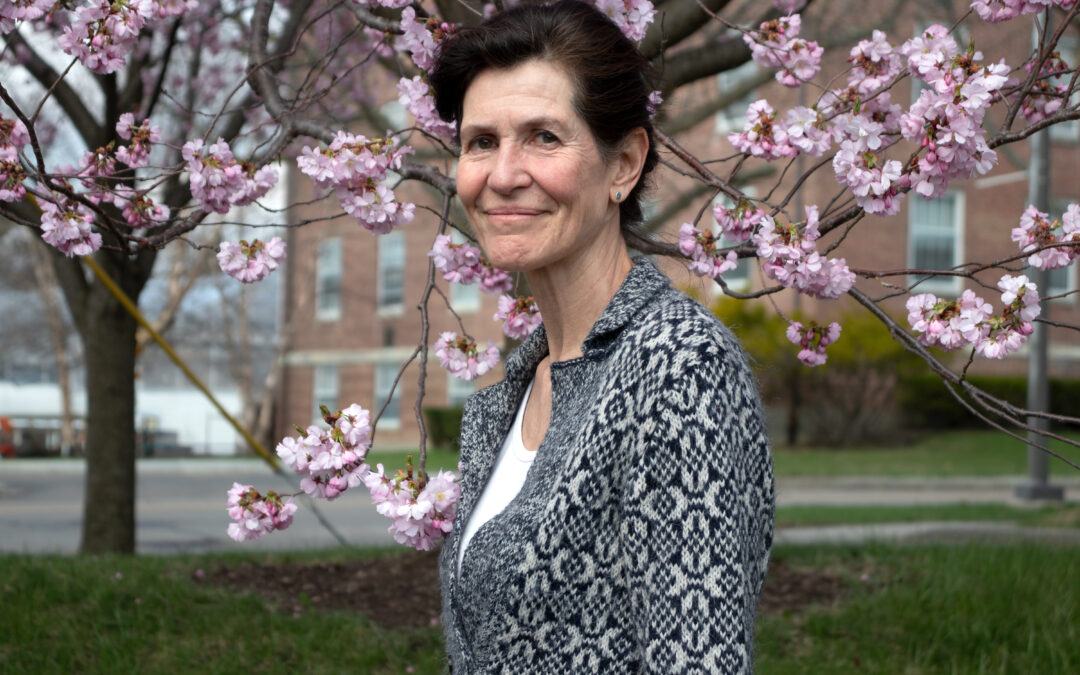

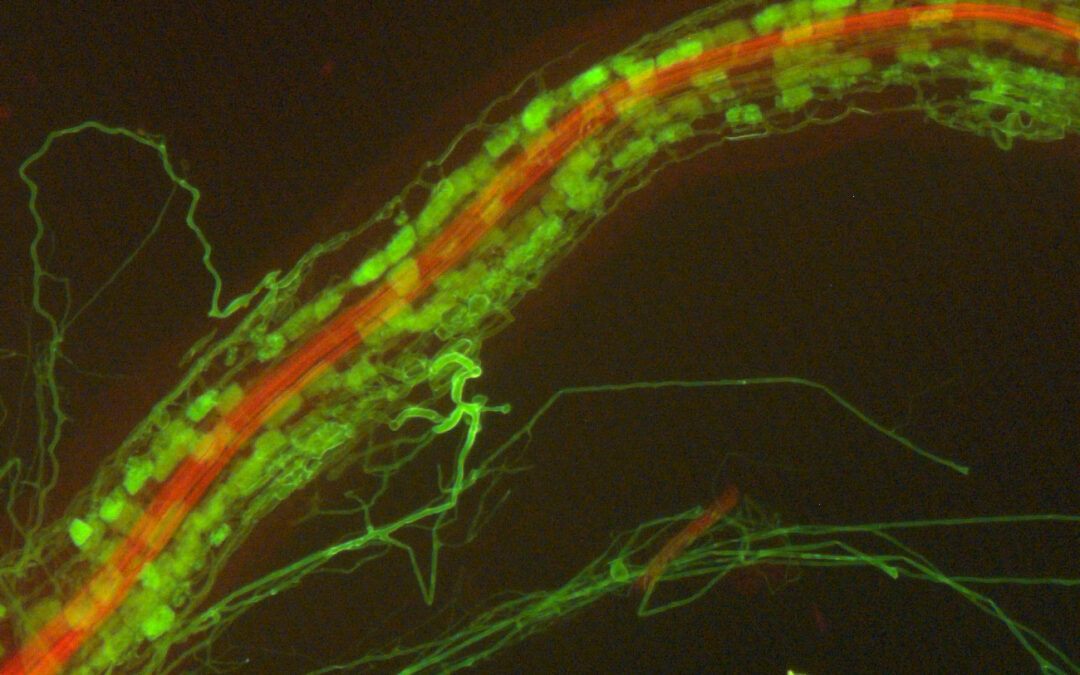
The Underground Network: Decoding the Dynamics of Plant-Fungal Symbiosis
The intricate dance of nature often unfolds in mysterious ways, hidden from the naked eye. At the heart of this enigmatic tango lies a vital partnership: the symbiosis between plants and a type of fungi known as arbuscular mycorrhizal (AM) fungi. New groundbreaking...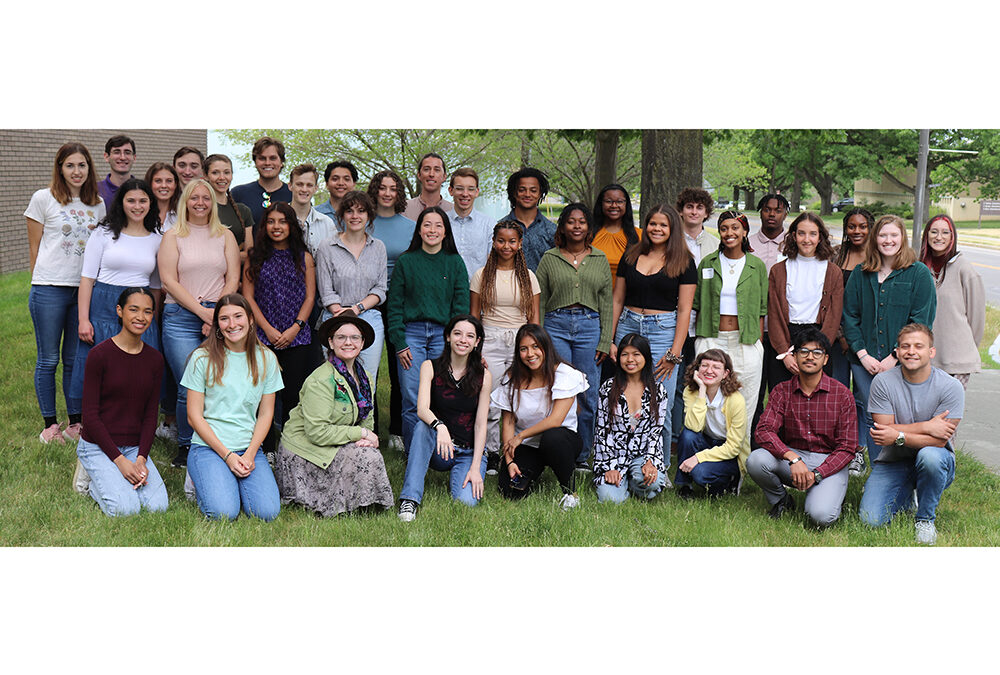
BTI Welcomes 2023 Undergraduate Student Researchers
On June 5, Boyce Thompson Institute welcomed 39 undergraduate students from colleges across the country to experience the life of a researcher for 10 weeks. Now in its 23rd year, BTI’s NSF funded Plant Genome Research Program (PGRP) and USDA funded Innovations in...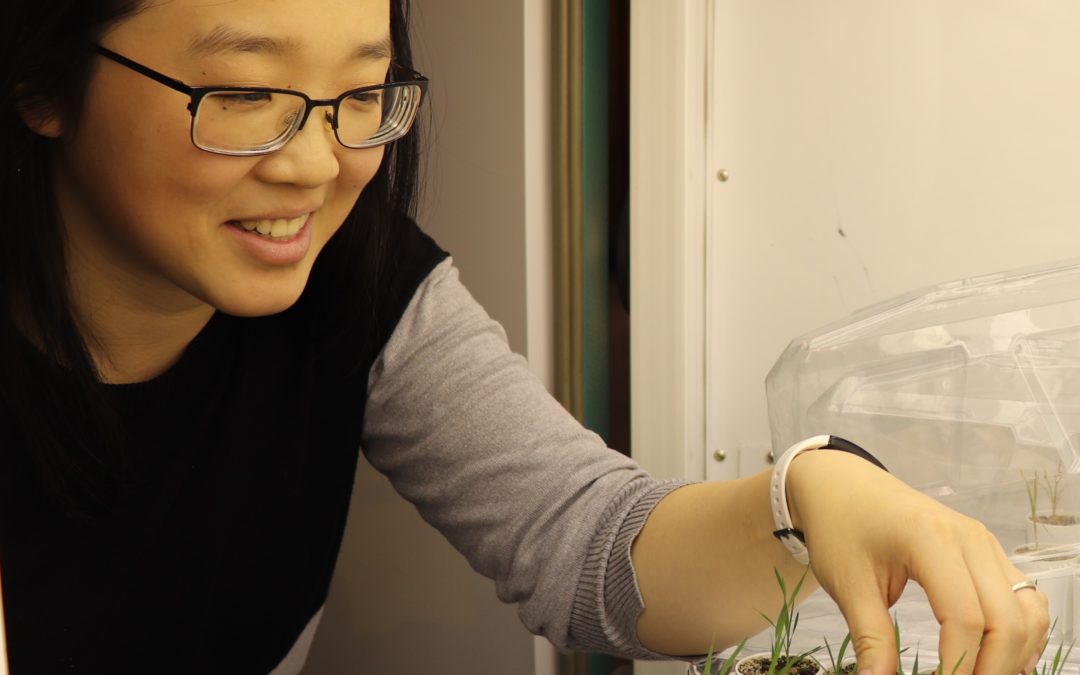
Phosphate biosensors could lead to more efficient fertilizer usage
Shiqi Zhang spent many months sitting alone in a dark room, staring intently into the lens of a confocal microscope as she focused a laser beam on plant cells mounted on a glass slide. She was measuring changes in the intensity of fluorescent light emitted by the...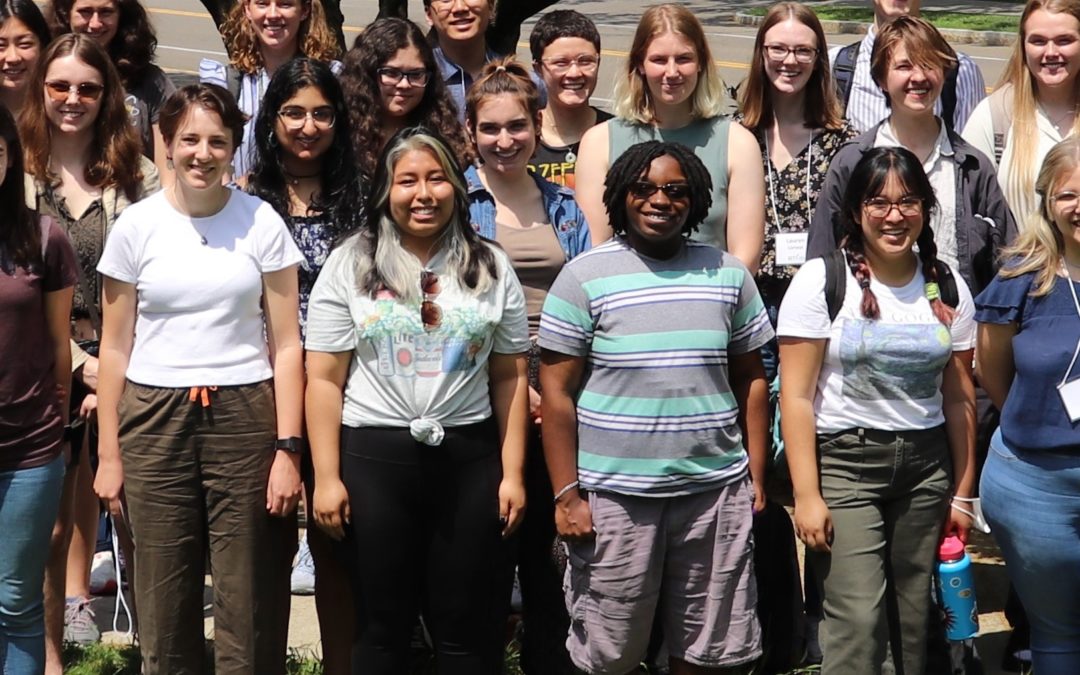
BTI Welcomes Summer Student Interns
On May 31, Boyce Thompson Institute welcomed 41 of the country’s brightest undergraduate students from universities around the country to experience the life of a researcher for 10 weeks. Ten more research interns from local area high schools will join the Institute...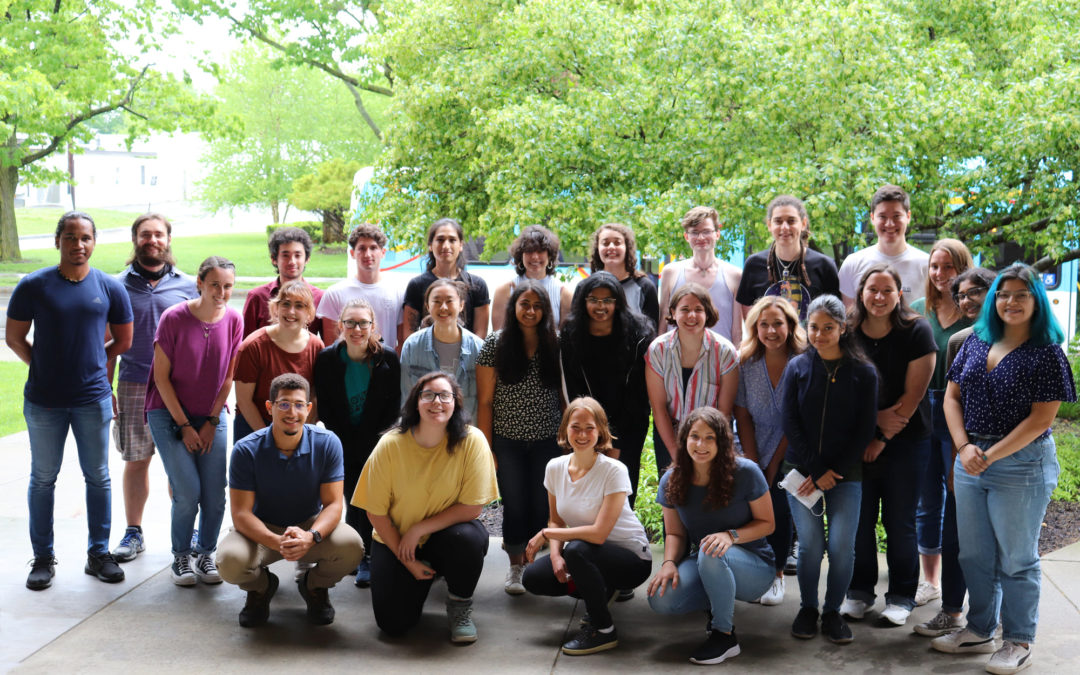
BTI Welcomes Summer Student Interns
On June 1, Boyce Thompson Institute welcomed 28 of the country’s brightest undergraduate students from universities around the country to experience the life of a researcher for 10 weeks. Seven more interns from local area high schools will join the Institute for six...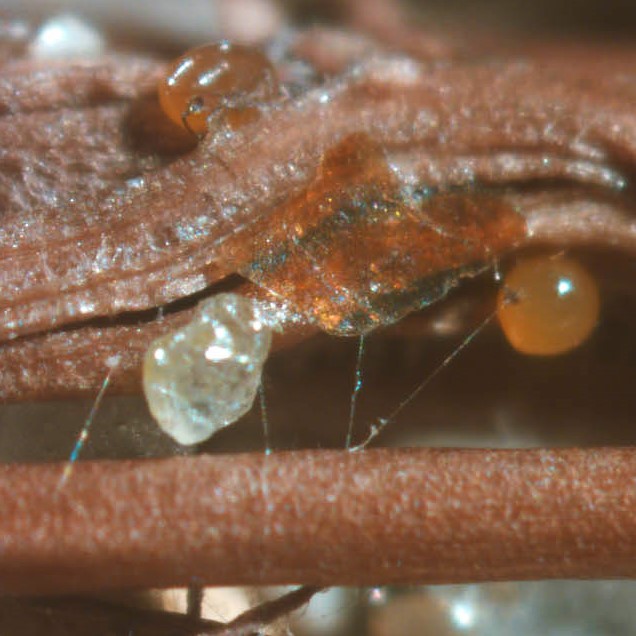
Fungi could manipulate bacteria to enrich soil with nutrients
A team of researchers from the Boyce Thompson Institute (BTI) has discovered a distinct group of bacteria that may help fungi and plants acquire soil nutrients. The findings could point the way to cost-effective and eco-friendly methods of enriching soil and improving...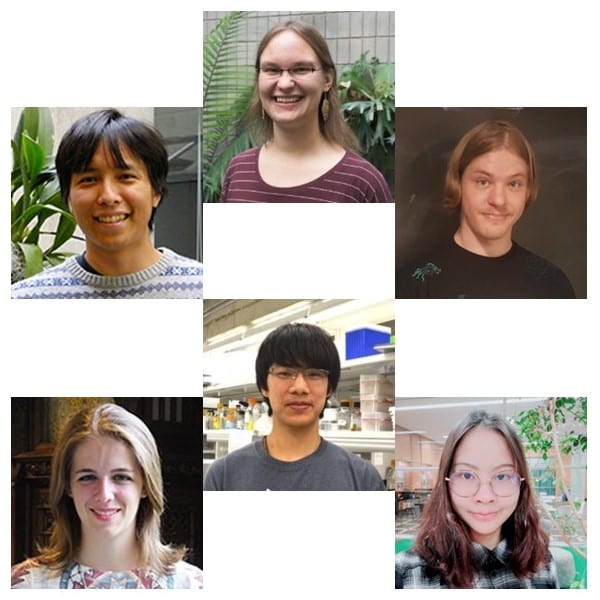
Congratulations Spring 2020 Graduates!
We are pleased to announce that six BTI researchers received their degrees from Cornell University this spring. Congratulations to our newest alumni: Jason Hoki, Schroeder lab, PhD in Chemistry & Chemical Biology, Dissertation title: “Development of...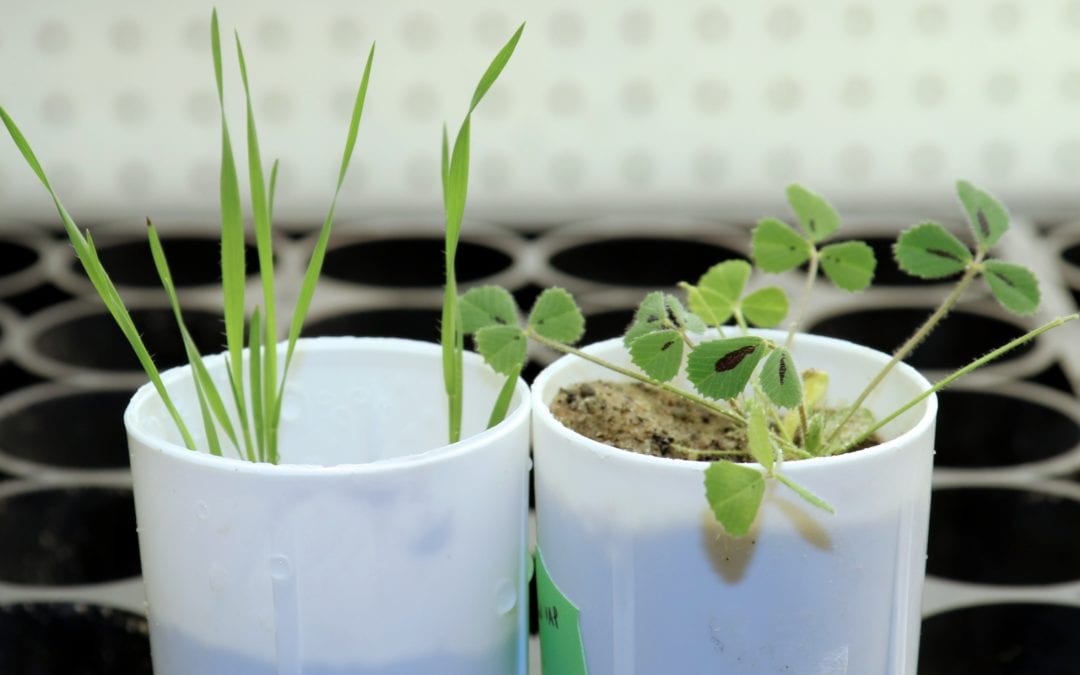
Plant Gene Discovery Could Help Reduce Fertilizer Pollution in Waterways
Over-fertilization of agricultural fields is a huge environmental problem. Excess phosphorus from fertilized cropland frequently finds its way into nearby rivers and lakes. A resulting boom of aquatic plant growth can cause oxygen levels in the water to plunge,...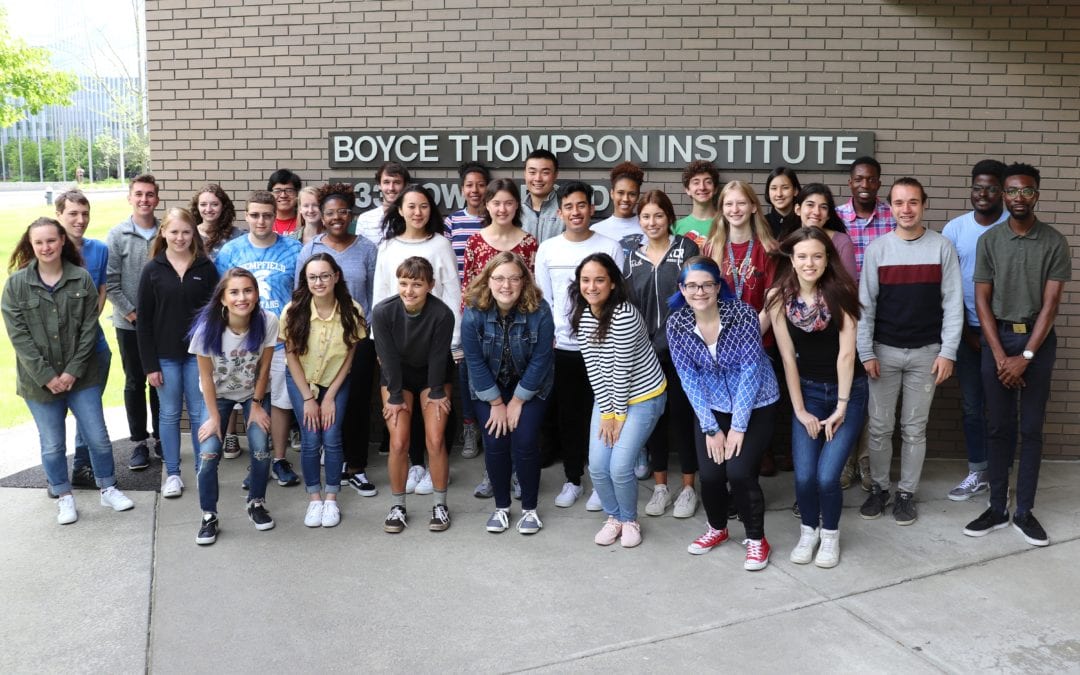
BTI Welcomes Summer Student Interns
On June 3, Boyce Thompson Institute welcomed 35 of the country’s brightest undergraduate students from universities around the country to experience the life of a researcher for 10 weeks. Eight more interns from area high schools will join the Institute for seven...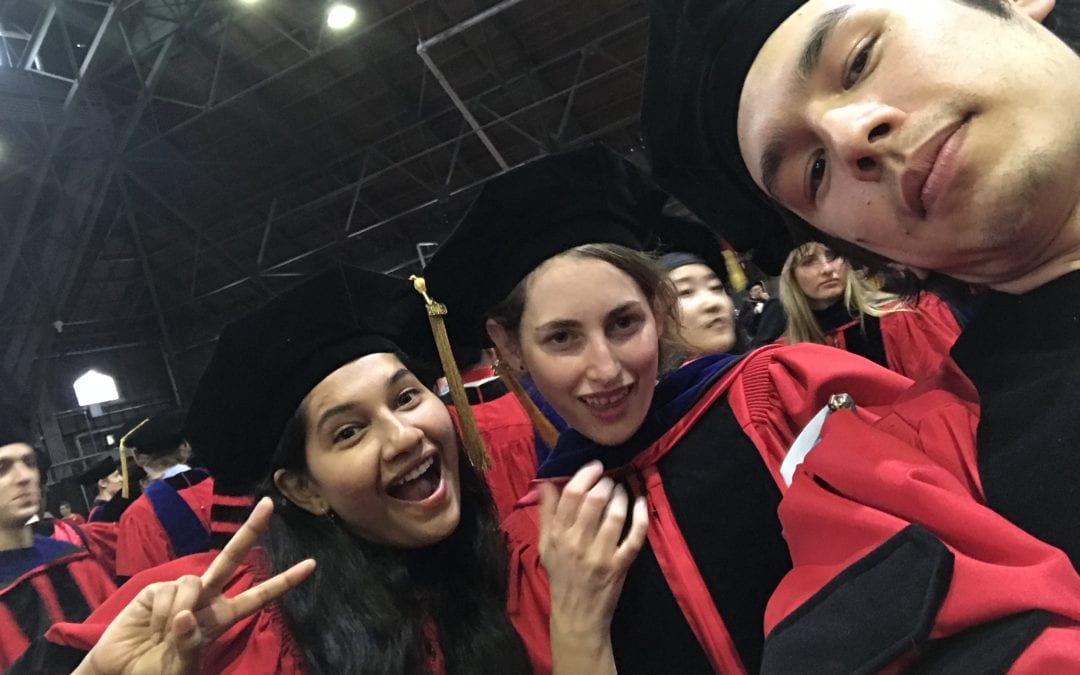
Congratulations to BTI’s PhD Graduates!
We are pleased to announce that seven Boyce Thompson Institute researchers received their PhD degrees during the Cornell University commencement ceremony on May 26. Congratulations to our newest alumni: Mariko Alexander, Heck lab, “Searching for the missing...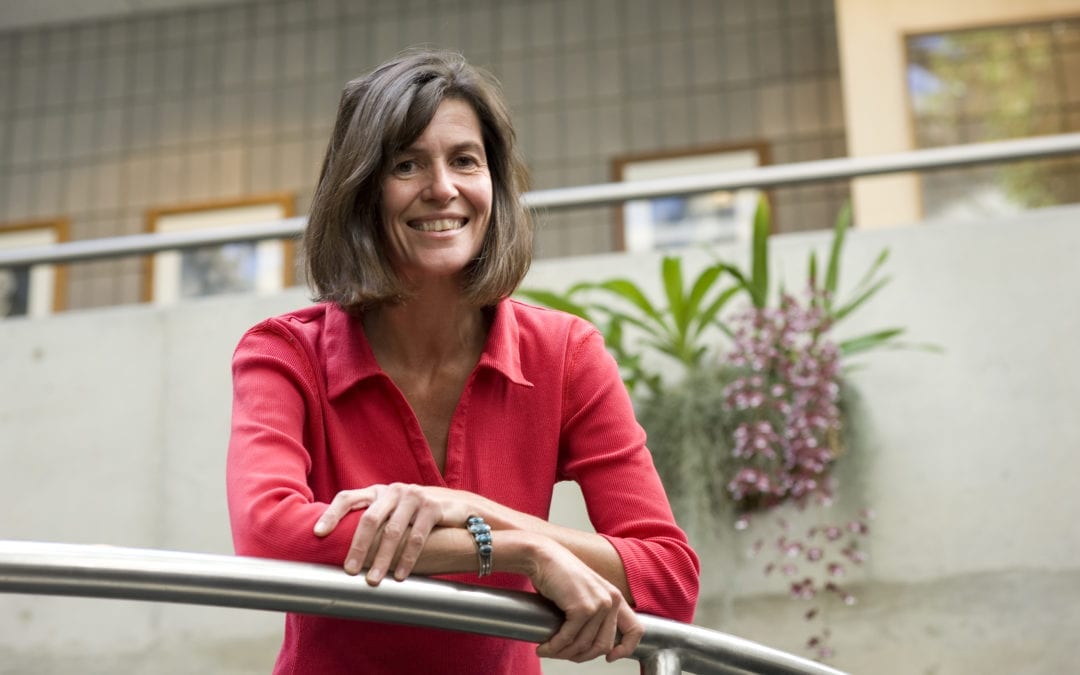
BTI’s Maria Harrison Elected to National Academy of Sciences
Maria Harrison, William H. Crocker Professor at Boyce Thompson Institute and Adjunct Professor in the School of Integrative Plant Science (SIPS) at Cornell University, has been elected to the National Academy of Sciences. Harrison is one of 100 new members announced...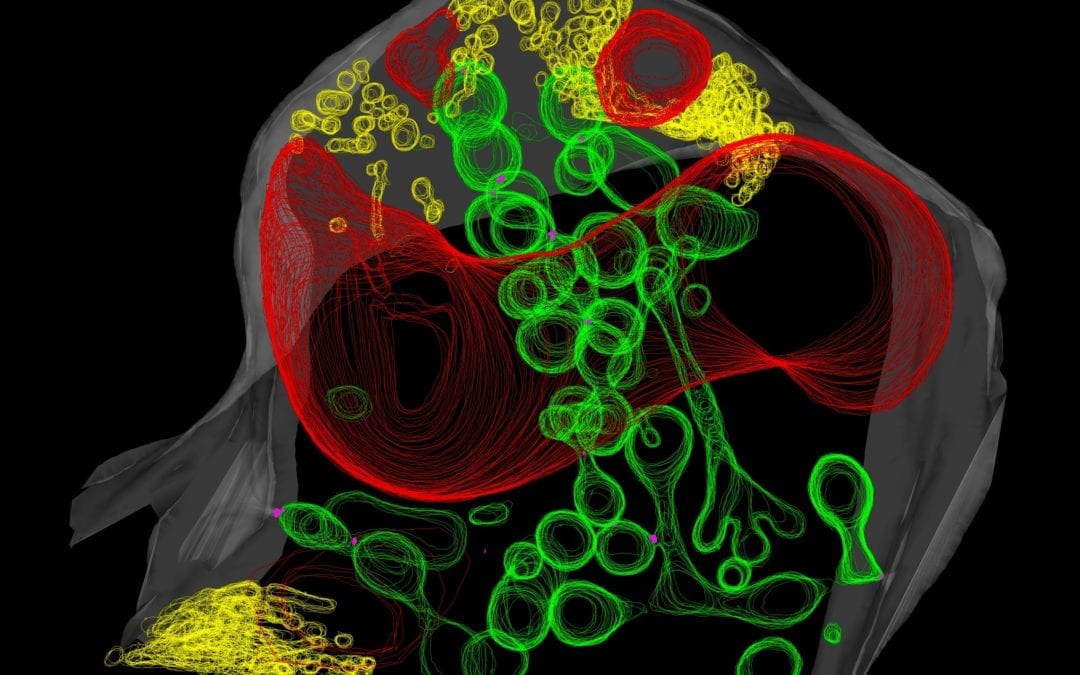
Plant–Fungal Interface Gets Tubular
For hundreds of millions of years, plants and fungi have formed symbiotic relationships to trade crucial nutrients, such as phosphate and fatty acids. This relationship is extremely important to the growth and survival of both organisms, and solving the mystery of how...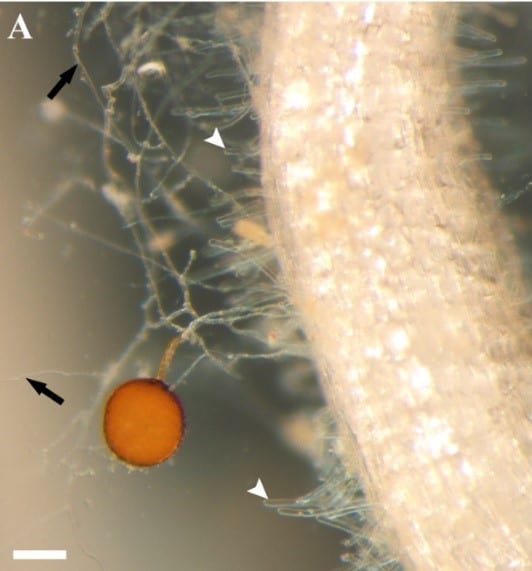
Back to our roots: Insights from genomes of a plant-associated fungus and its bacterial endosymbionts
In an article published this month in the journal New Phytologist, researchers at the Boyce Thompson Institute and the National Center for Genome Resources describe the genome sequences (DNA sequences), of the fungus Diversispora epigaea (formerly known as Glomus...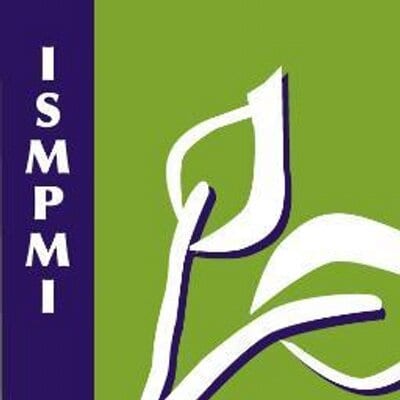
Maria Harrison featured in interview with International Society for Molecular Plant-Microbe Interactions
In this IS-MPMI’s interview with Kevin Cope (University of Wisconsin-Madison), Maria Harrison discusses her research on arbuscular mycorrhizal fungi and provides advice to young scientists entering the field.

Maria Harrison, consortium of scientists receive $5 million grant to study genes that help legumes access soil nutrients
BTI’s Harrison lab will develop Medicago truncatula mutants to identify the function of genes predicted to be important in nitrogen fixation in legumes.
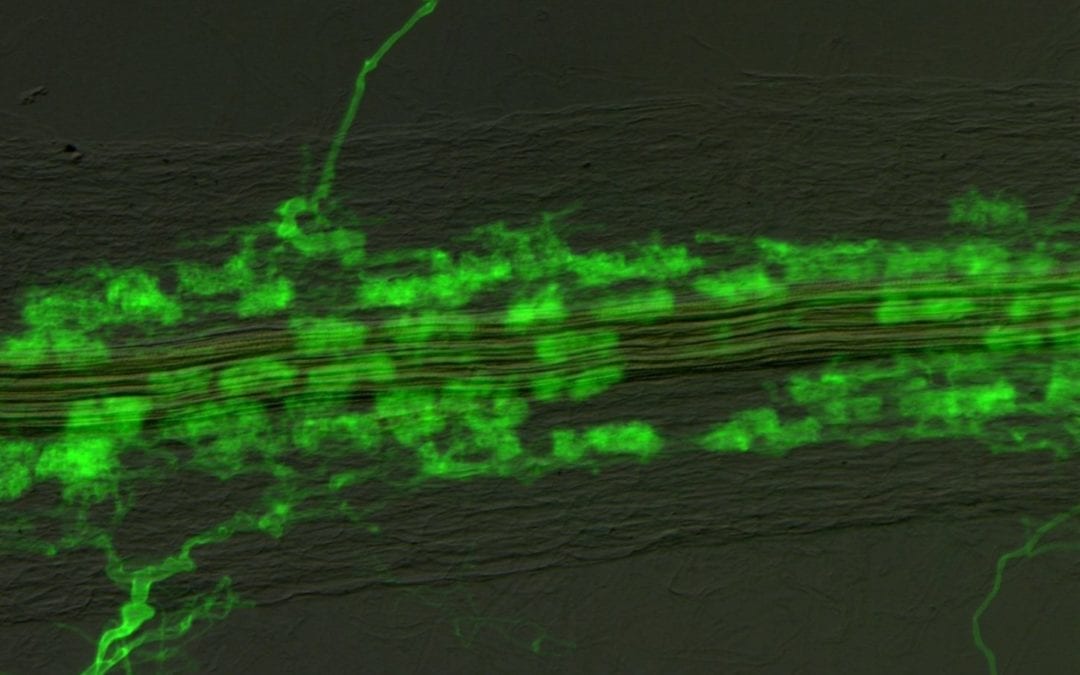
400 million years of a stable relationship: clues to the molecular basis of balance in AM symbiosis
Researchers from the Harrison lab at BTI have identified a transcriptional program that drives arbuscule degeneration during AM symbiosis. This regulation of arbuscule lifespan has likely contributed to the 400MY stability of the symbiosis by preventing the persistence of fungal cheaters.
Feeding fat to fungi: evidence for lipid transfer in arbuscular mycorrhiza
Researchers from the labs of Dr. Maria Harrison at the Boyce Thompson Institute and Dr. Peter Dörmann at the University of Bonn have produced the first experimental evidence to suggest that AM fungi also get lipids from the plant. AM-induced FatM and RAM2 may play specific roles in the biosynthesis of 16:0 βMAG, which cannot be produced by the fungus, providing a clue to understanding the obligate nature of AM fungi.

‘New Visions’ of food security from Cassandra Proctor
“Food security is a mixture of all the different aspects of agriculture. It’s not just growing the food,” said Proctor. “It’s not just planting something in the ground – there is a lot more to it.”
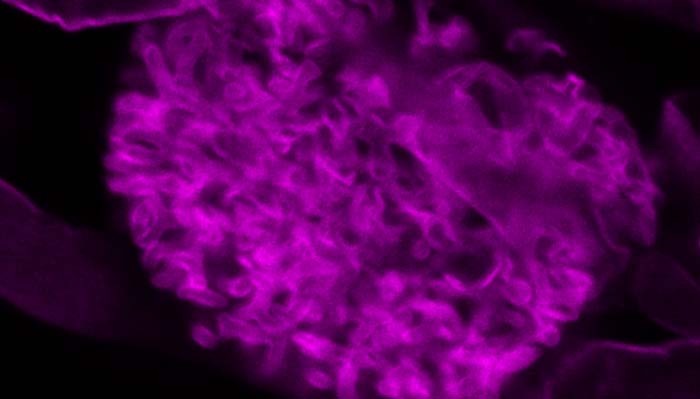
Researchers Uncover Core Set of Genes for Plant-Fungal Symbiosis
BTI researchers used a genome comparison approach to identify genes necessary for beneficial plant-fungal relationships, which may lead to better crop plants that require less fertilizer input.

Harrison Receives Grant for Phosphate Biosensor Research
Fluorescent proteins will allow researchers to track phosphate movement through cells in real time.

Better Biofuels: Harrison Collaborates on Sorghum Project
Maria Harrison will participate in a $13.5 million, multi-institution systems biology project with Daniel Schachtman of the University of Nebraska-Lincoln to develop sorghum that is more drought resistant and uses nitrogen more efficiently.

Scientists Unravel Root Cause of Plant Twists and Turns
BTI researchers Harrison and Floss collaborate with Cornell physicists to understand how roots grow around barriers in the soil, while still heading down.

Key Protein for Plant-Fungal Symbiosis Discovered
Harrison Lab has discovered that plants use EXO70I to form a membrane around the fungus in arbuscular mycorrhizal (AM) symbioses, beneficial associations where plants receive phosphate from fungi in exchange for carbohydrates.

BTI Hosts Flash Science! Speaking Competition
BTI Professor Emeritus Robert Kohut initiates competition at BTI to give early-career scientists an opportunity to communicate with the general public and practice their “elevator speech.”

Planting a Passion for Research
Marshall Tyler nominated Maria Harrison for the 2015 Cornell University College of Agriculture and Life Sciences Faculty Excellence in Undergraduate Research Mentoring Award.

Ammonium Transporter Saves Plant-Fungal Symbiosis, When Nutrients Run Low
The discovery of the role of this ammonium transporter improves the understanding of how the plant and fungal partners regulate the symbiosis and how phosphate and nitrogen move through the system.

Maria Harrison Wins ASPB’s Dennis R. Hoagland Award
Professor Maria Harrison is the 2015 winner of the Dennis R. Hoagland Award from the American Society of Plant Biologists, given every three years, for her outstanding work on plant mineral nutrition.

Eaglesham Bridges BTI and Both Cambridges
James Eaglesham began his career as an intern at BTI, and heads to the University of Cambridge, England as a Churchill scholar for pathology research. When back in US, Eaglesham will pursue his doctorate in virology at Harvard, in Cambridge, MA.
BTI Scientist Maria Harrison is Co-principal Investigator on $6.5M NSF Award
The research project will study genes responsible for beneficial symbioses with bacteria and fungi. Work in the Harrison lab will focus on the plant-fungal AM symbiosis and how it improves phosphorus uptake in plants.
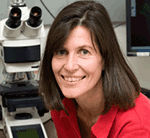
Maria Harrison Named William H. Crocker Scientist
At its May meeting, the BTI Board of Directors named Maria Harrison as the William H. Crocker Scientist.
